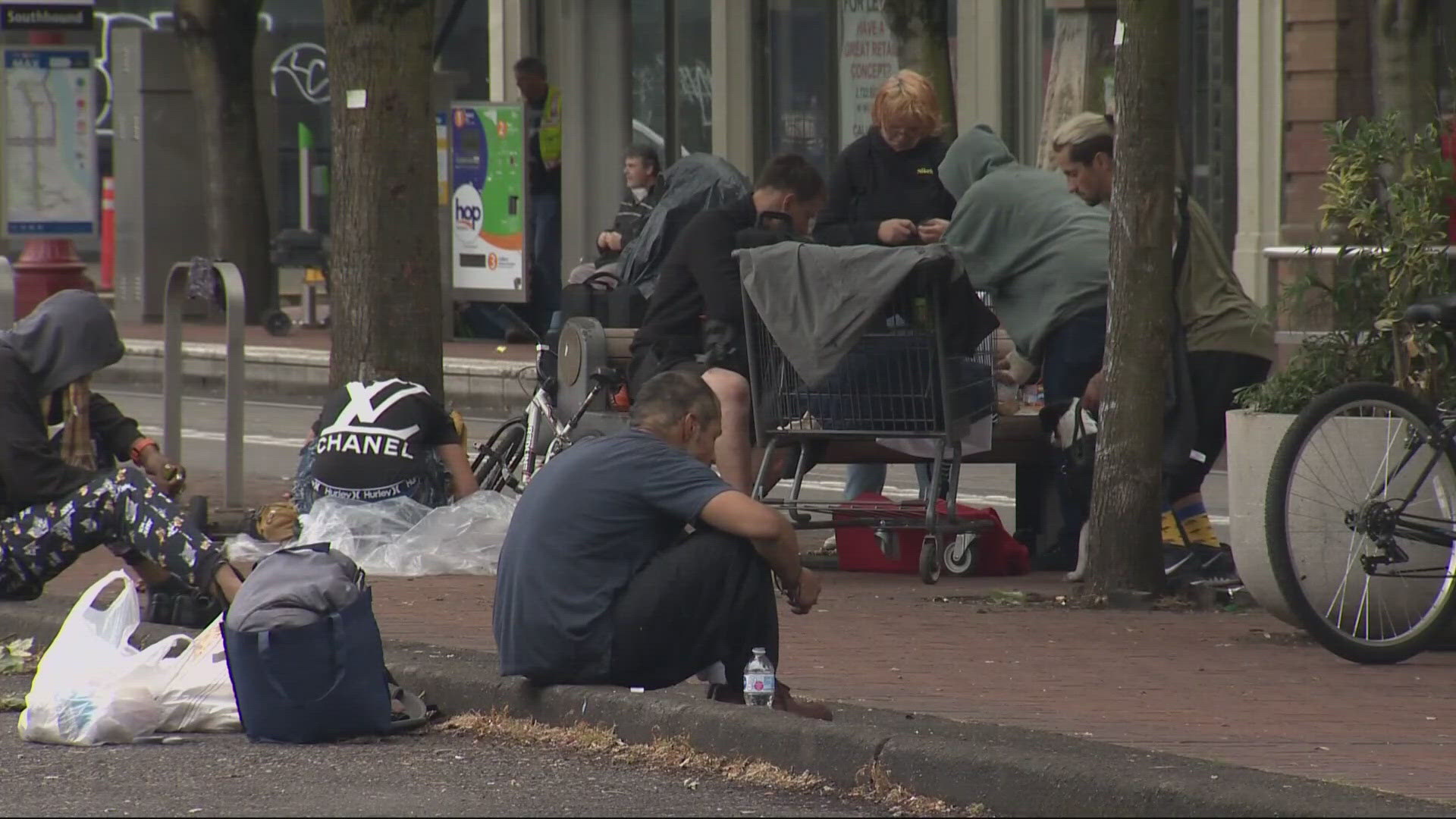PORTLAND, Ore. — Come September, possession of small amounts of hard drugs will be a crime again in Oregon. If caught by police, people who are not committing any other crimes will have the option of treatment over jail.
At the South Park blocks Monday, a man held white, powdered fentanyl in a small container. His friend, Shine, who is also homeless and addicted to the drug, spent the weekend getting more. Shine said he spends about $700 a week on drugs of all kinds.
“I’ve seen people do literally all kinds of sh** they wouldn’t normally do out of their character just to get the drug,” said Chris, another man addicted to fentanyl.
But when the new law takes effect Sept. 1, any encounter with police might face these men with a dilemma.
“I would definitely pick treatment all the way through, just because I’ve been to jail,” Shine said.
If detained, police would then take people like Shine to a building on the Central Eastside off Southeast Sandy Boulevard to get connected with recovery services. That person would then have 30 days to engage with those services. If they don't and are caught by police within the following 30 days, they would be arrested.
“See, that sounds like it would be nice — but in reality, what ends up happening is they just fake it 'til they make it the whole time, and they end up back on the streets relapsing or what have you,” said Chris.
The deflection center will open in September. Next year, some sobering services will be available, too, with a permanent drop-off sobering center opening in 2026, later than originally planned.
In a letter shared with KGW Monday, Portland Police Chief Bob Day urged the Multnomah County Board of Commissioners to prioritize the immediate implementation of the sobering center plan previously submitted, saying they can “no longer accept the consequences of further delay.”
“We know if a police officer finds someone who is intoxicated, they have three options: jail, the ER, or leave the person on the streets,” said Multnomah County Commissioner Julia Brim-Edwards.
KGW first showed the letter to Commissioner Brim-Edwards. She once led the sobering center efforts.
Multnomah County Chair Jessica Vega Pederson’s office told KGW in an email Monday that she looks forward to further conversations with Chief Day as the county looks to bring sobering resources online.
The board of commissioners will be briefed on August 15 with the latest details of the sobering center plan.
A spokesperson for the Multnomah County District Attorney’s office also sent KGW the following statement regarding the deflection program and potential need for public defenders:
“The intent of deflection is to provide pathways to treatment and services in lieu of criminal prosecution. If deflection is successful, then a public defender will not be needed because the individual won't be criminally charged.
"However, if an individual chooses not to deflect (or if they fail deflection and become ineligible for deflection for 30 days under the new criteria announced on Friday), they will be arrested and charged. In that case, a public defender will likely be needed for the defendant, and we are still experiencing a shortage and seeing cases being dismissed on a weekly basis.”

